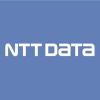About US (GEMS):
ENGIE Global Energy Management & Sales (GEMS) provides energy supply solutions and risk management services to support its clients through their decarbonization journey, while optimizing ENGIE’s assets and contributing to value creation.
ENGIE is a global reference in low-carbon energy and services with a leading energy management business, piloted by its entity "Global Energy Management & Sales" who built its savoir-faire managing the Group’s large and diverse asset portfolio over 20+ years.
3,600 employees around the world develop our solutions, through +20 international business platforms. We cover the full energy mix: renewable and thermal power, natural gas & LNG, biomass, environmental products. Our experts provide tailor made solutions based on a wide range of savoir-faire in energy management with a strong focus on decarbonation and decentralization.
Our 190,000 clients span the entire value chain: producers, asset developers, financial players, utilities, distributors and industrials. Our global reach and strong local presence enable us to offer these diverse clients tailor-made services and respond to rapid changes in mature or emerging markets alike.
Our 4 expertises:
• Asset management
• Energy transition services
• Energy supply & global commodities
• Risk management & market access
At GEMS we encourage breakthrough results, team spirit, curiosity and innovation while preserving the right work/life balance for you.
More info on GEMS Hub (https://gems.engie.com) or LinkedIn (https://www.linkedin.com/company/engie-global-energy-management-solutions).
Context:
Within the GEMS Business Unit, Business Platform (BP) APAC is responsible for GEMS activities in Asia Pacific & Middle East & aims at managing and developing the group’s trading activities for these regions around 4 main pillars: risk management and market access, asset management, green solutions and energy supply businesses. BP APAC as part of this expansion strategy for developing Asset Management business is looking to set up platform in India to support RGBU / group development and develop related commercial franchise. In planning for India, already opened last year in Japan.
For BP APAC, Japan & India will be the first time the BP is managing physical electricity. There will be a need to development tools, processes and skills around short term trader following the implementation of Power Purchase Agreements (PPAs) contract and Battery Energy Storage System (BESS). There is an important Data related component.
There is a need to support the respective desk with Data (analysis, structure, integrity…) and processes (short term trading (Intraday + Day ahead).
Role:
Optimization Problem Solving:
- Develop, implement, and maintain optimization models to solve complex business problems (short term trading).
- Identify optimization opportunities within the business and design custom algorithms to address them.
Data Analysis and Modeling:
- Collect, clean, and preprocess large datasets from multiple sources.
- Build and validate predictive models using statistical, machine learning, and optimization techniques (BESS, PSP, …).
- Conduct exploratory data analysis to uncover trends, patterns, and insights that inform optimization strategies.
Collaboration and Communication:
- Work closely with stakeholders to understand business objectives, constraints, and requirements.
- Collaborate with cross-functional teams (commercial, trading, analyst, market Risk..) to integrate optimization solutions into existing systems and processes.
- Present findings, insights, and optimization strategies to both technical and non-technical audiences.
Tool Development and Deployment:
- Develop and deploy optimization tools, dashboards, and visualizations that enable business users to interact with and leverage optimization solutions.
- Ensure the scalability and robustness of deployed solutions in a production environment.
Documentation and Reporting:
- Document all stages of the optimization problem-solving process, including data preparation, model development, and results.
- Produce regular reports that detail the impact of optimization solutions on business outcomes.
QUALIFICATIONS
Educational Qualifications.
- A bachelor’s degree in a field such as mathematics, marketing, IT, computer science, or an adjacent field like business information systems, economics, information management, or statistics.
- A postgraduate degree in a related discipline, such as business analytics, data science, or big data.
Technical Skills. a good data scientist has a diverse collection of “hard” or technical skills, such as:
- Computer science. This skill applies the principles of database systems, artificial intelligence, numerical analysis, human/computer interaction, and software engineering.
- Data storytelling. This skill entails communicating actionable insights using data, typically for the benefit of a non-technical audience.
- Data visualization. This skill encompasses learning Tableau, or several other data visualization tools, to help share data insights through charts, graphs, and other visual aids.
- Machine learning. This skill covers implementing algorithms and statistical models to allow a computer to learn from data without human influence or action.
- Programming. No self-respecting data scientist is without some programming knowledge, including knowing several languages such as Java, R, Python, and SQL. This knowledge also involves writing computer programs and analyzing large datasets to generate answers to complex problems.
- Statistical analysis. This skill involves identifying patterns in data and includes having a sharp sense of pattern detection and anomaly detection.
Soft Skills. Data scientists also need a range of soft skills, such as:
- Analytical thinking. This skill covers finding analytical solutions to abstract business issues.
- Business intuition. This skill lets you connect with stakeholders to get a complete understanding of the problems they want to solve.
- Critical thinking. Critical thinking is a vital skill that applies the objective analysis of the facts before arriving at a conclusion.
- Inquisitiveness. This skill is a form of curiosity, looking beyond what’s on the surface and discovering patterns and solutions within the data.
- Interpersonal skills. This skill covers communication with a diverse audience throughout all levels of an organization.
Work Location:
























